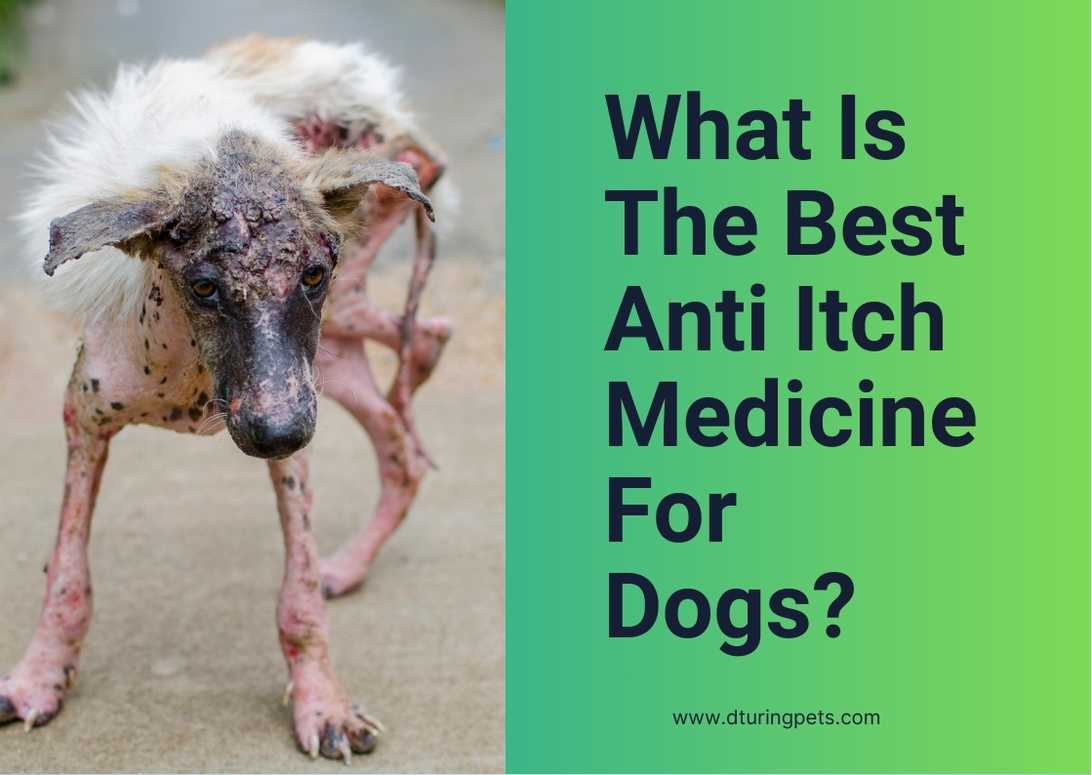What Is The Best Anti Itch Medicine For Dogs?
As a dog owner, I know firsthand how frustrating it can be to see our furry friends constantly scratching and itching. It’s like watching them try to catch their tails – a never-ending cycle of discomfort and frustration.
But fear not, because there are options out there to help alleviate their itchiness and provide relief.
In this article, I will explore the best anti-itch medicine for dogs and delve into the different types of treatments available. From fast-acting options like topical sprays to oral medications and natural remedies, we’ll uncover what works best for our beloved pups.
So if you’re tired of seeing your dog suffer from constant itching, keep reading to discover the most effective solutions that veterinarians recommend for long-term relief.
Important Points
- Vet’s Best Allergy Itch Relief Spray for Dogs is highly recommended as an effective anti-itch medicine for dogs.
- Fast-acting options like Veterinary Formula Clinical Care Hot Spot & Itch Relief Medicated Spray provide quick relief for itching.
- Burt’s Bees for Dogs Natural Itch Soothing Spray with Honeysuckle is another option for soothing and relieving itchiness in dogs.
- Alternative therapies such as acupuncture, massage therapy, and cold laser therapy can also be considered for itch relief in dogs.
Types of Itch Relief
If your dog is in need of itch relief, there are various options available such as Pupper Absorb and BARK&SPARK Allergy Relief Dog Treats. However, one highly recommended option is Vet’s Best Allergy Itch Relief Spray for Dogs. This spray is specifically formulated to provide fast relief from itching. It contains a blend of natural ingredients that soothe the skin and reduce inflammation. With Vet’s Best, you can expect your furry friend to feel better in no time.
In addition to over the counter options like Vet’s Best, there are also alternative therapies and home remedies that can help alleviate your dog’s itchiness. Alternative therapies such as acupuncture or herbal medicine may provide relief for some dogs. Home remedies like oatmeal baths or coconut oil can also be effective in soothing irritated skin. If your dog’s itching persists or worsens, it may be necessary to consult with a veterinarian for allergy testing or behavior modification techniques.
Transitioning into the subsequent section about fast-acting options, it’s important to note that while alternative therapies and home remedies can be effective for long-term management of itchiness, sometimes you need a quick solution. That’s where fast-acting options like Veterinary Formula Clinical Care Hot Spot & Itch Relief Medicated Spray come in handy. These sprays contain active ingredients that provide immediate relief from itching and help control hot spots on your dog’s skin.
Fast-Acting Options
For quick relief, try using a fast-acting option that’ll have your furry friend feeling better in no time. Fast-acting sprays and soothing creams are great options to provide immediate relief from itching.
One such option is Vet’s Best Allergy Itch Relief Spray for Dogs. This spray is specifically formulated to provide fast relief from itching caused by allergies or hot spots. Simply spray it directly onto the affected area and let the natural ingredients work their magic.
Another fast-acting option is Burt’s Bees for Dogs Natural Itch Soothing Spray with Honeysuckle. This spray not only soothes itching but also helps moisturize and nourish the skin, promoting healing.
In addition to sprays and creams, there are alternative therapies that can help alleviate itchiness in dogs. These include acupuncture, massage therapy, and cold laser therapy. These therapies can help reduce inflammation and promote overall well-being, providing long-lasting relief from itching.
If you prefer a more holistic approach, hypoallergenic diets and herbal supplements can also be beneficial for relieving itchiness in dogs. Hypoallergenic diets eliminate common allergens such as grains and certain proteins, which can help reduce allergic reactions leading to itching. Herbal supplements like chamomile or nettle can have anti-inflammatory properties that soothe itchy skin.
Transitioning into the subsequent section about ‘topical treatments’, there are also many effective options available for topical treatment of itchiness in dogs without resorting to medication or oral treatments.
Topical Treatments
When your furry friend is feeling itchy, soothe their discomfort with topical treatments that’ll provide relief like a gentle breeze on a warm summer day. Here are some options to consider:
Herbal remedies: Some natural herbs, such as chamomile and calendula, have anti-inflammatory properties that can help alleviate itching in dogs. Look for products that contain these ingredients or consider making your own herbal rinse by steeping the herbs in warm water and applying it to your dog’s skin.
Homeopathic treatments: Homeopathy uses highly diluted substances to stimulate the body’s natural healing response. There’re homeopathic sprays and creams available specifically formulated for itch relief in dogs. These treatments work by addressing the underlying cause of the itching rather than just temporarily relieving symptoms.
Essential oils: Certain essential oils, like lavender and tea tree oil, can have soothing effects on itchy skin when used properly. However, it’s important to note that not all essential oils’re safe for dogs, so be sure to consult with a veterinarian before using them. Dilute the essential oil in a carrier oil and apply it sparingly to affected areas.
In addition to these topical options, there’re also cooling gels and anti-itch shampoos available for dogs that provide immediate relief from itching. These products often contain ingredients like aloe vera or oatmeal, which help calm irritated skin. However, if your dog’s itching persists or becomes severe despite using these topical treatments, it may be necessary to explore oral medications as the next step in providing relief.
Overall, there’re various topical treatments available for dogs experiencing itchiness ranging from herbal remedies and homeopathic treatments to essential oils and cooling gels. These options offer different approaches to relieving itchiness and can be worth exploring based on your dog’s individual needs before considering oral medications as an alternative solution.
Oral Medications
Looking for an effective way to provide your furry friend with relief from itching? Consider exploring oral medications as a solution that can help alleviate their discomfort.
Oral medications for itch relief in dogs are available in various forms, including tablets and liquids. These medications work internally to address the underlying causes of itching, such as allergies or skin conditions.
When considering oral medications for your dog’s itch relief, it’s important to be aware of potential side effects. Some common side effects may include drowsiness, upset stomach, or changes in appetite. It’s essential to consult with your veterinarian to determine the appropriate dosage based on your dog’s weight and condition. They’ll also guide you on any necessary precautions or potential drug interactions.
In terms of effectiveness comparison, oral medications often provide longer-lasting relief compared to topical treatments. While topical treatments may offer immediate relief, they may need frequent reapplication. On the other hand, oral medications typically offer extended periods of itch relief after administration.
It’s crucial to follow the recommended dosage guidelines provided by your veterinarian and monitor your dog’s response closely. If you notice any adverse reactions or if the medication doesn’t seem to be providing adequate relief, contact your vet for further guidance.
As we explore natural remedies in the next section, it’s important to note that while oral medications can be highly effective for relieving itching in dogs, some pet owners prefer more holistic approaches.
Natural Remedies
If your furry friend is in need of some soothing relief from itching, why not explore the world of natural remedies?
There are a variety of homeopathic solutions and herbal treatments available that can help alleviate your dog’s discomfort without relying on medications. One popular option is to use alternative therapies such as essential oils or herbal sprays, which can provide immediate relief and promote healing.
Lavender oil, for example, has been found to have calming properties and can be applied topically to relieve itching. Additionally, aloe vera gel can soothe irritated skin and reduce inflammation. These holistic approaches offer a gentle and natural way to address your dog’s itchiness.
Another natural remedy that may be worth considering is dietary supplements. Adding certain nutrients to your dog’s diet, such as omega fatty acids or vitamin E, can improve their overall skin health and reduce itching. Fish oil supplements, for instance, contain high levels of omega-3 fatty acids which have anti-inflammatory properties and can help manage allergies in dogs.
It’s important to consult with your veterinarian before starting any new supplements to ensure they’re safe and appropriate for your pet.
While natural remedies can provide effective relief for many dogs, it’s always a good idea to seek vet recommendations for persistent or severe itching. Your veterinarian will be able to assess the underlying cause of the itchiness and provide tailored treatment options that address the root issue.
Natural remedies can complement veterinary care but shouldn’t replace professional advice when needed. So if you’re looking for a more holistic approach to relieving your dog’s itchiness, consider trying some natural remedies alongside guidance from your trusted veterinarian.
Vet Recommendations
For a more comprehensive approach to addressing your dog’s itching, consider seeking vet recommendations for tailored treatment options. Veterinarians have extensive knowledge and experience in managing allergies and can provide effective treatments that target the root cause of your dog’s itching. They may recommend medications such as antihistamines or corticosteroids to alleviate the itchiness and inflammation.
Additionally, vets often suggest alternative therapies like acupuncture or laser therapy to complement traditional treatments and promote overall well-being.
When consulting with a veterinarian, they may also provide valuable advice on preventing itching in the first place. They may recommend specific dietary changes or supplements that can help manage allergies and reduce itching symptoms. Furthermore, they can guide you on proper grooming techniques and suggest hypoallergenic shampoos or sprays that are gentle on your dog’s skin.
By following vet recommendations, you can find effective solutions to manage your dog’s itching and improve their quality of life. However, it’s important to note that these treatments may offer temporary relief rather than long-term solutions.
Let’s explore some long-term strategies for addressing your dog’s itching without resorting to medication-based remedies.
Long-Term Solutions
When exploring long-term solutions for managing your dog’s itching, it’s important to consider the potential benefits of dietary changes and supplements. For example, a case study showed that switching a dog’s diet to one that’s high in omega-3 fatty acids and low in common allergens significantly reduced their itching symptoms over time. This means incorporating foods that are rich in fatty acids such as fish oil or flaxseed oil, which can help improve your dog’s skin health and reduce inflammation.
Additionally, avoiding common allergens like grains or certain proteins may also alleviate itchiness.
Environmental modifications can also play a crucial role in managing your dog’s itching. Making sure that your home environment is clean and free from potential irritants such as dust mites or pollen can make a significant difference. Regularly washing your dog’s bedding and vacuuming the house can help minimize exposure to these allergens. It may also be helpful to create an allergy-free zone for your dog by using air purifiers or keeping them away from areas with heavy dust accumulation.
Alongside dietary changes and environmental modifications, another option to explore is allergy testing. Identifying specific allergens that trigger your dog’s itchiness through blood or skin testing can provide valuable insights for targeted management. Once you know what substances are causing the allergic reactions, you can take steps to minimize exposure or even eliminate them from your dog’s environment.
Immunotherapy options may also be considered for long-term relief of itching symptoms. These treatments involve gradually exposing your dog to small amounts of the allergen they react to in order to build up tolerance over time. Immunotherapy can be administered through injections or sublingual drops under veterinary supervision and has shown promising results in reducing allergic responses.
Lastly, maintaining regular grooming routines is essential for managing itchiness in dogs. Regular bathing with gentle shampoos formulated specifically for sensitive skin can help soothe irritation and remove any potential irritants from their coat. Brushing your dog regularly can also help distribute natural oils and prevent matting, which can contribute to itching.
Overall, long-term solutions for managing your dog’s itching involve a multi-faceted approach that includes dietary changes, environmental modifications, allergy testing, immunotherapy options, and regular grooming routines. It’s important to consult with your veterinarian to determine the most suitable combination of these strategies for your furry friend’s specific needs.
Frequently Asked Questions
Can I use human anti-itch creams or lotions on my dog?
I wouldn’t recommend using human anti-itch creams or lotions on dogs. They may contain ingredients that could be harmful to them. It’s best to consult a veterinarian for safe and effective anti-itch medications for dogs.
Are there any side effects associated with using anti-itch medications for dogs?
Using anti-itch medications for dogs may have side effects like drowsiness or upset stomach. Instead, try alternative remedies like oatmeal baths or coconut oil. Avoid using human products as they can be dangerous for dogs.
Can I give my dog over-the-counter allergy medication for itch relief?
No, it is not recommended to give your dog over-the-counter allergy medication for itch relief without consulting a veterinarian. There are dog-friendly antihistamines and prescription itch medications available, along with alternative therapies and tips for managing allergies in dogs to prevent itching.
Are there any natural remedies I can try at home to relieve my dog’s itching?
Sure, there are plenty of “natural remedies”out there to “relieve itching”in dogs. You can try oatmeal baths, coconut oil, aloe vera, and even witch hazel. Just don’t forget your dog’s tin foil hat!
What are some long-term solutions to prevent itching in dogs?
Preventive measures such as regular grooming, dietary changes, and environmental control can help prevent itching in dogs. Additionally, natural supplements like omega-3 fatty acids can provide long-term relief by improving skin health.
Conclusion
In conclusion, finding the best anti-itch medicine for your dog can make a world of difference in their comfort and overall well-being. Whether you choose fast-acting topical treatments, oral medications, or natural remedies, there are numerous options available to suit your furry friend’s needs.
For example, let me tell you about Max, a Labrador Retriever who suffered from severe itching due to allergies. His owner tried various products without success until they discovered Vet’s Best Allergy Itch Relief Spray for Dogs. Within days of using this spray, Max’s itching reduced significantly, allowing him to enjoy long walks and playtime without discomfort.
Remember to consult with your veterinarian before starting any new medication or treatment plan for your dog’s itch relief. They can provide personalized recommendations based on your dog’s specific needs and help you find the best solution for them in the long term.
By taking proactive steps to alleviate your dog’s itching, you can improve their quality of life and strengthen the bond between you and your furry companion. So don’t hesitate to explore different options and find the best anti-itch medicine that will bring relief and happiness to your beloved pet.








